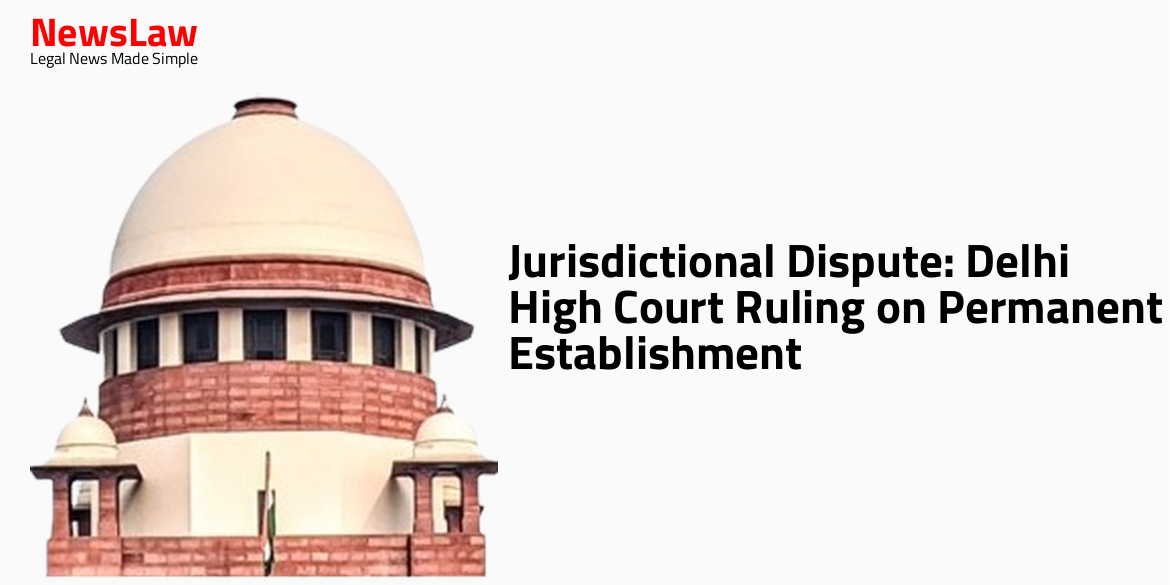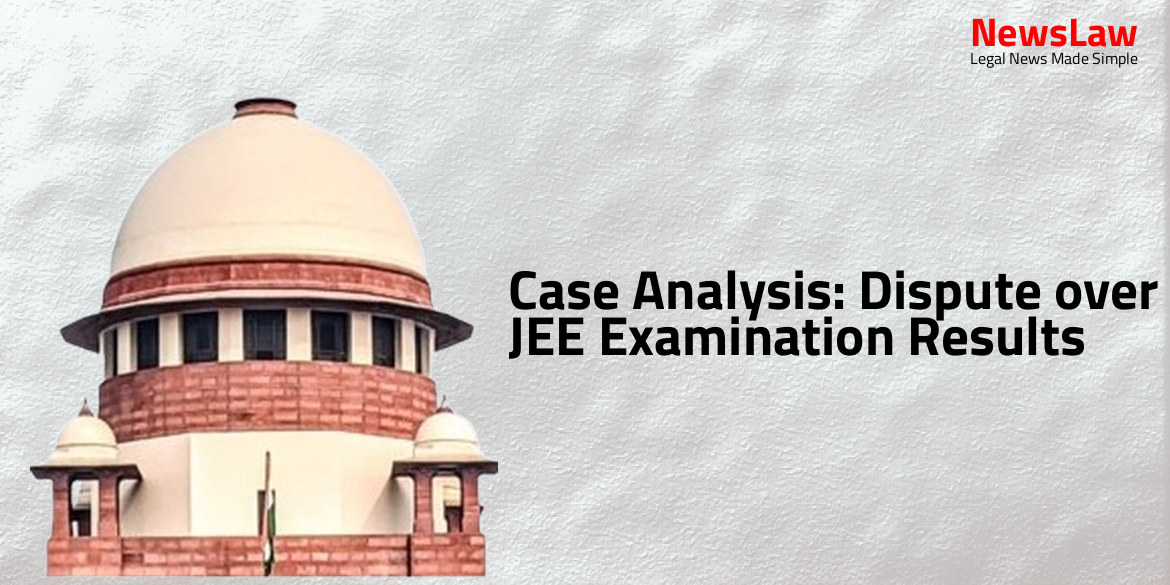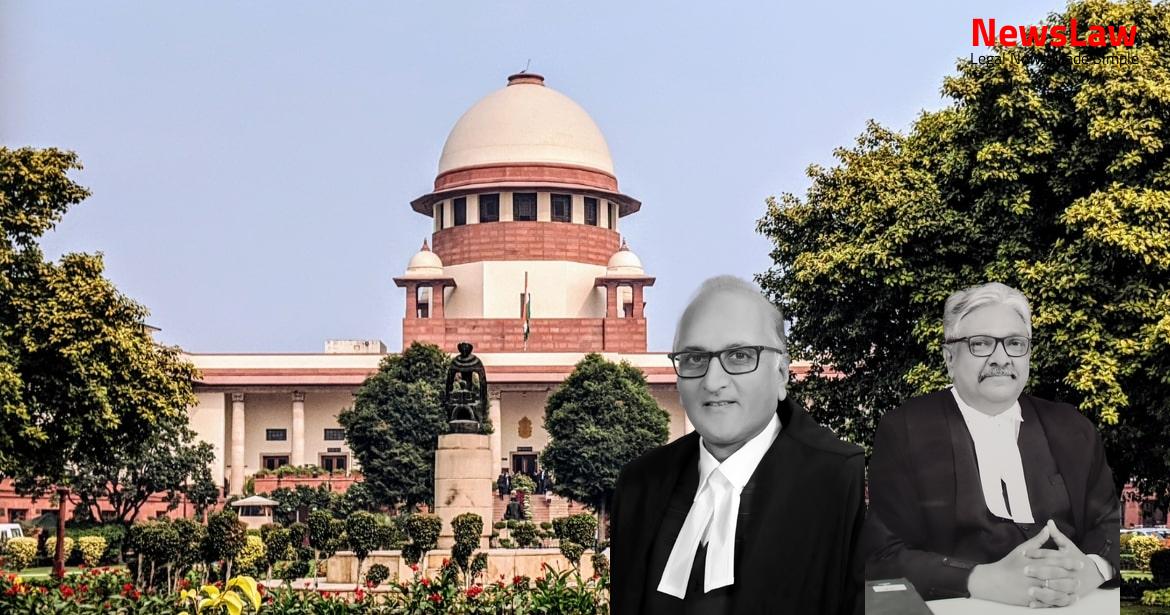In a significant legal battle, the Delhi High Court has pronounced its decision on the jurisdictional dispute involving Progress Rail Locomotive Inc. and the tax authorities regarding the concept of Permanent Establishment. The court’s ruling sheds light on key aspects of international transactions and transfer pricing, impacting future tax assessments and global business operations.
Facts
- Progress Rail Locomotive Inc., a foreign company registered in the USA and part of Caterpillar Group, provides back office and technical support services.
- The main international transaction is the provision of technical support services.
- The petitioner has a wholly owned Indian subsidiary, Progress Rail Innovations Private Limited, which was previously located in Noida but later shifted to Hubli in Karnataka.
- The Indian subsidiary is assessed in New Delhi and has undergone transfer pricing studies as an Associated Enterprise of the petitioner.
- The first respondent initiated penalty proceedings due to the petitioner’s failure to submit Income Tax Returns.
- The first respondent proposed action under Sections 147/148 of the Income Tax Act based on a report finding the Indian subsidiary to be a Permanent Establishment of the petitioner.
- The petitioner challenged the jurisdiction of the first respondent through various communications.
- The international transactions entered into by the petitioner have been tabulated and questioned by the tax authorities.
- The Assessee was remunerated on a cost plus basis for its transactions.
- The first respondent assumed authority to initiate reassessment proceedings based on the findings regarding the Indian subsidiary’s status as a Permanent Establishment.
Issue
- Fundamental question of whether a PE came into existence within the territorial area
- Examination of whether Section 148 power was justifiably invoked
Arguments
- The Noida premises could not be considered a virtual projection of the holding company.
- Interrelated transactions were conducted at arm’s length and assessed in transfer pricing studies.
- The first respondent erred in assuming jurisdiction under Sections 147/148 of the Act.
- No prima facie view or reasons recorded for the charge of income escaping assessment in the impugned notices.
- Arguments regarding PE, Service PE, and DAPE presented by both parties.
- Disputed views on the existence of a PE in India.
- References to judgments and legal interpretations supporting both parties’ contentions.
- Claims that the Indian subsidiary did not constitute a Fixed Place PE or a Service PE.
- Challenges to the jurisdiction of the first respondent in initiating reassessment proceedings.
- Issues related to migration of jurisdiction and PAN for reassessment purposes.
- Citations of relevant legal precedents and interpretations in support of arguments.
- Importance of specific facts and evidence related to the business operations in India.
- Mr. Agarwal cited the decision in E-Funds IT Solutions Inc. to argue that the Indian subsidiary’s activities did not fall within the provision of the India-USA DTAA.
- Details of income derived by the Indian subsidiary from transactions with the petitioner between FYs 2011-12 to 2017-18 were provided.
- The argument was made that PRIPL was assisting in the core services of the petitioner and not performing ‘auxiliary’ or ‘preparatory’ functions.
- Mr. Agarwal presented material like emails, letters, purchase orders, cost audit report, and financial statements to support his case.
- Differences between the decisions in E-Funds IT Solutions Inc. and Samsung Heavy Industries Limited were highlighted to distinguish the present case.
- Mr. Datar questioned the fairness of the action taken, claiming selective extraction of statements by the authorities.
- It was argued that the activities of the Indian establishment were not solely or almost wholly for the petitioner, as other clients also contributed to the income of SMPL.
- References were made to Article 5(4) and DAPE 111 in analyzing the actions undertaken by the respondents.
- Comparisons were drawn with other judicial decisions and a comparative chart was presented to support the argument against the reassessment.
- The argument was made that a wholly owned subsidiary does not automatically constitute a PE, as clarified in Article 5(6) of the India-USA DTAA.
- Principles related to subsidiary PE were discussed with references to scholarly work by Arvid Aage Skaar.
- The threshold for ‘wholly’ or ‘almost wholly’ was explained in light of the Ordinary English meaning and percentage interpretations.
- The jurisdictional issue regarding reassessment proceedings was raised concerning the location of the appropriate Assessing Officer.
Analysis
- Definition of permanent establishment includes various types of physical locations or activities
- Certain activities or locations are deemed not to constitute a permanent establishment
- Certain conditions under which a person acting on behalf of an enterprise creates a permanent establishment
- Exception for agents of independent status
- Control or relationship between companies from different Contracting States does not automatically create a permanent establishment
- The outsourcing of services to India by American companies does not establish a fixed place permanent establishment under the treaty.
- The Indian company only provides support services enabling the American companies to serve their clients abroad.
- Presence of a foreign enterprise in another country must have a substantial element to constitute a permanent establishment.
- The test of an enduring and permanent presence must be met for a subsidiary to be considered a permanent establishment of the foreign parent.
- The Australian subsidiary was not considered a permanent establishment of the foreign parent due to substantial financing by the parent.
- The concept of a fixed place permanent establishment has been explained in the context of different cases.
- The principles governing fixed place permanent establishments have been discussed and elaborated by various courts.
- The OECD Commentary sheds light on the interpretation of ‘habitually’ in relation to Article 5(4)(a) regarding the authority to conclude contracts.
- The assumption of jurisdiction cannot be sustained.
- Even a prima facie test would not support the opinion as formed.
- The Court should have concluded that the decision on the question of PE was correctly decided or at least a plausible view.
- Without the PE question being answered against the petitioner, Respondent No 1 would have no authority to proceed.
- The opinion as expressed by Respondent No 1 cannot be considered tentative or open for debate.
- The foundation of the impugned action is arbitrary and unsustainable.
- The impugned reassessment proceedings should be quashed.
Decision
- The transfer of the PAN of the petitioner was solely to facilitate the first respondent conducting the reassessment
- The jurisdiction of the PAN of the petitioner has been quashed, and it shall revert to the jurisdictional AO of the petitioner
- All rights and contentions of parties in that respect are kept open
- The respondents are to independently examine whether the office of the petitioner in the Delhi Circle constitutes a PE
- The impugned notices issued under Section 148 on various dates have been quashed
Case Title: PROGRESS RAIL LOCOMOTIVE INC. (FORMERLY ELECTRO MOTIVE DIESEL INC.), Vs. DEPUTY COMMISSIONER OF INCOME-TAX (INTERNATIONAL TAXATION), CIRCLE – NOIDA & ORS. (2024:DHC:4331-DB)
Case Number: W.P.(C)-12411/2019



